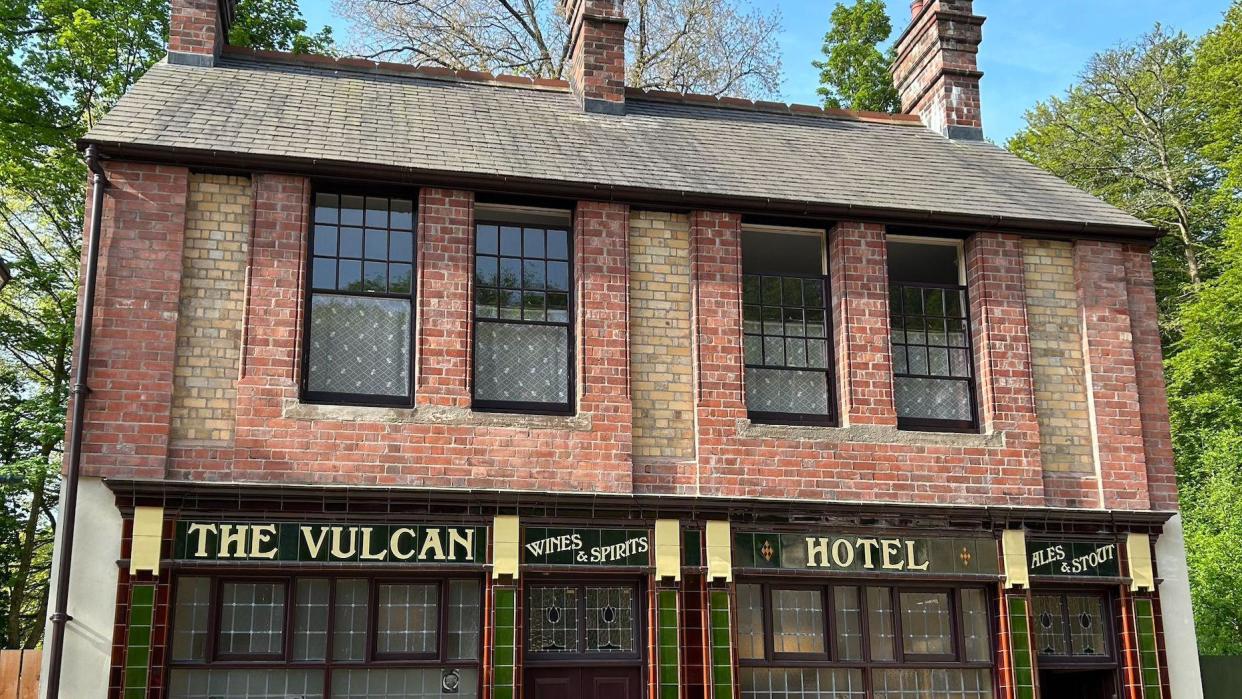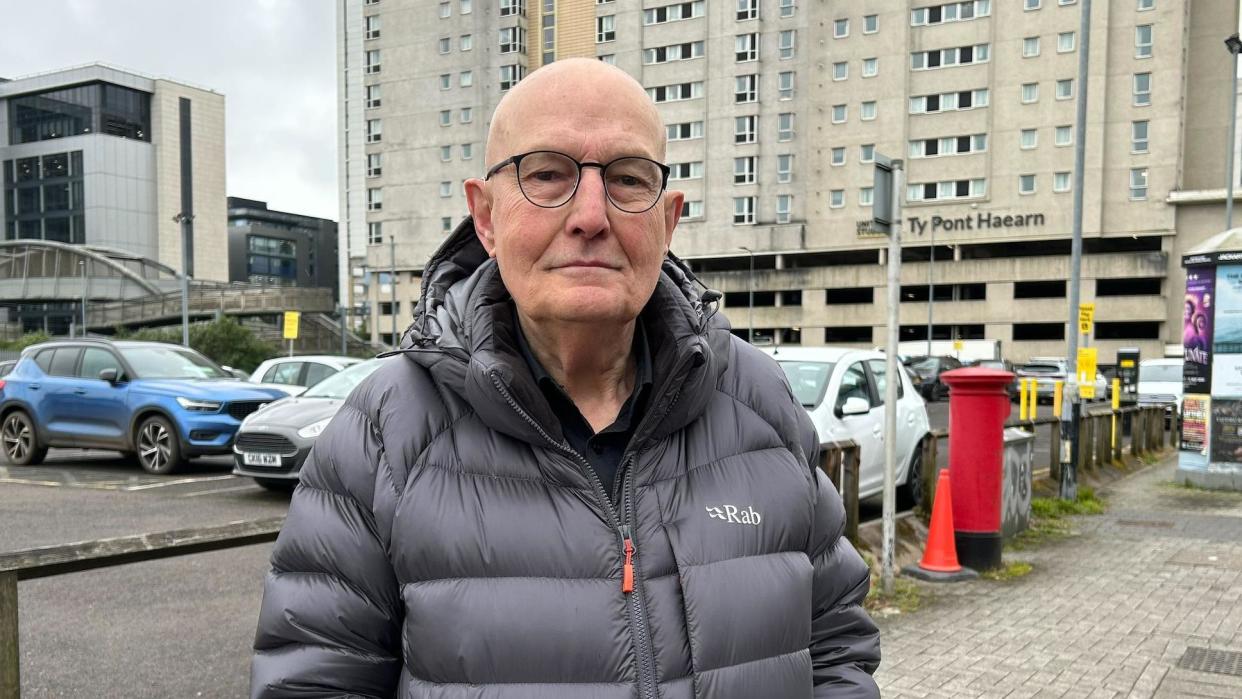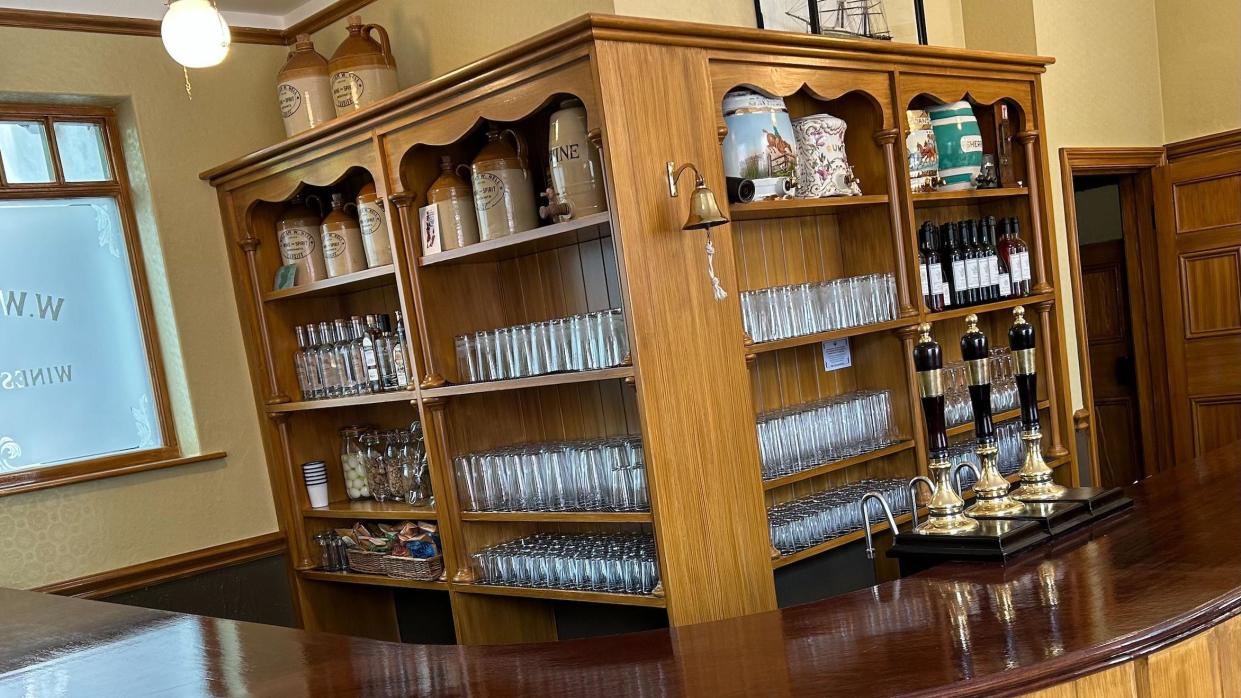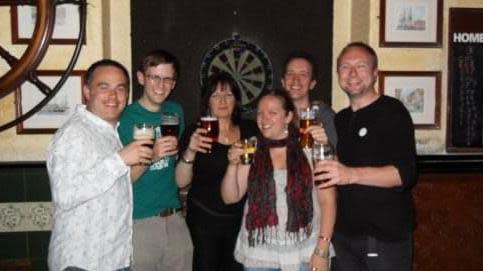Cardiff's Vulcan Hotel pub to reopen at St Fagans

A pub that can lay claim to being both Cardiff's oldest and newest is ready to open its doors once again.
The Vulcan Hotel stood on Adam Street for more than 170 years, but closed in 2012.
But the building has been relocated and completely rebuilt as Musuem Wales' latest living exhibition at St Fagans.
The pub will officially open on the museum site in the capital later.
The Vulcan was first registered as an "ale house" in 1853 and served the mainly Irish community of what was then called Newtown.
It saw major changes over its long history as Cardiff developed during the Industrial Revolution
Peter Finch, an author and poet, said it had a "friendliness feel about it".
"It was a working-class pub.
"It used to have sawdust on the floor, decades before.
"It was a friendly pub, it was one where people played darts, where you had your pint and you could talk to people."

A petition, started by campaign group Save the Vulcan, drew thousands of signatures - including actor Rhys Ifans and Manic Street Preachers frontman James Dean Bradfield - when it closed in 2012.
"When we started the campaign we had no idea, really, at the strength of feeling that was going to come out," said Rachel Cable, who was part of the campaign group.
"We booked a huge room in the university building opposite the Vulcan, and I thought 'oh, no, it might just be a handful of us'.
"But actually, over 100 people turned out, so there was a real strength of feeling there, that was really important," she said.
The rebuild has drawn mixed emotions from those who campaigned to save the pub from closure.

Baroness Randerson, who represented the area at the time, was one of the people in favour of keeping the building in the same location.
"I remember saying I was prepared to lie down in front of the beer taps.
"I'd been passionately in favour of keeping that pub in the community that it had served for so long, and I also wasn't impressed by what was planned to replace it.
"But, having thought we were facing demolition, the offer from St Fagans was absolutely, astonishingly helpful," she said.
In May 2012, the historic buildings team at St Fagans began to carefully record and dismantle the pub, before bringing it brick-by-brick to the museum.
It has been painstakingly rebuilt over the past 12 years to look as it did in 1915.
Michelle Lewis ran the Vulcan for the final two years before it closed, and pulled the last pint behind the bar.
"It was such a fun place to work," she said.
"It was really hard work, but looking at it now, how it is today, I do think 'I wish I could go back'.
"It’s nice as well to be part of something that is going to be here forever".
Dafydd William, principal curator of historic buildings at Museum Wales, said: "You have to record every detail, because once you have taken the building down, it is gone, and you have to refer back to your notes."
"The year 1915 was the year that the look of the Vulcan, as we remember it, was established.
"We have copies of the architectural plans from that period, so we have a very good idea of how the building looked."

Those who once drank in the Vulcan, and campaigned to keep it in the community it served, have high hopes for what it will bring to its new home.
“I think it’s an absolutely terrific development on the part of the museum” said Mr Finch.
"This is a big experiment for them, but I am really glad it is going there. It’s going to be a different experience, but we have to come to terms with that," he added.
"One of my hopes is that having the pub there will allow other people to tell their stories” said Ms Cable.
"What they remember from the pub, as well as other community campaigning stories, and critically, the importance of everyday heritage."
